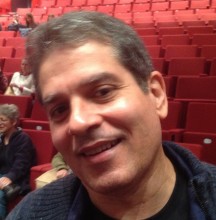Paulo Machado on what advanced learners need

This was a presentation of some key ideas which emerged from a large teacher development project, from needs analysis through observations to recommendations and workshops, at the Cultura Inglesa in Rio de Janeiro.
Paulo began by showing a typical piece of classroom discourse following the initiation-response-feedback pattern. Most of the talk was by the teacher in the initiation and feedback, while the student’s input in the response move was limited to one word. Clearly, this kind of exchange may demand very little of the students, who may never stray out of their comfort zones, but Paulo suggested we adapt rather than reject the discourse pattern. After all, all professions have typical discourse patterns – the script comes with the job. However, we need to break out from the pattern sometimes.
Paulo listed five types of classroom exchange: instructions; elicitation; management; monitoring and feedback. Of these, the last two show the most potential to be ‘opened out’ to stretch the advanced learners’ abilities a bit further, and here, the emergent language is probably more important than the actual on-task discourse. He then went on to demonstrate how this may be achieved, using a group from the audience acting as a group of advanced learners and the rest of the audience as observers. While the learners were doing groupwork discussions (on a personalized topic), Paulo monitored and pushed them to be more ambitious and precise in their language use. After task completion, he gave feedback which then fed into a second performance of the task with the learners talking to new partners, so that the first attempt was framed as a scaffolded rehearsal for the second. Finally, Paulo asked questions to promote active reflection on what was learnt from the task.
A summary in key ideas: break out of IRF pattern; push students out of comfort zone (demand-high); give opportunities for rehearsal; provide scaffolding to ensure tangible linguistic gains; monitor closely and personalize.




Add new comment